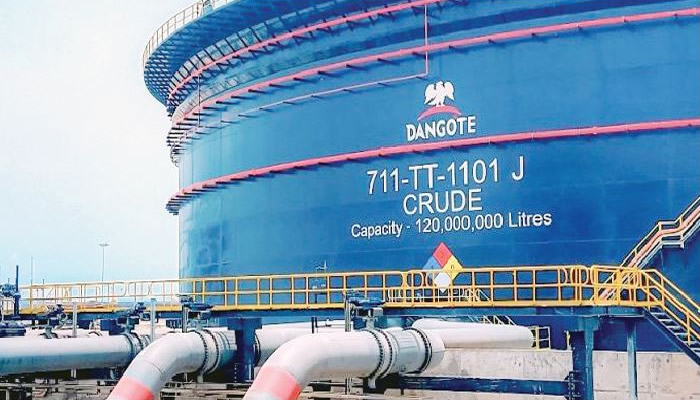Ghana is advocating for the introduction of a regional currency within the Economic Community of West African States (ECOWAS) as a means to facilitate fuel purchases from the newly operational Dangote Refinery in Nigeria. This call for a regional currency comes amidst growing economic challenges and currency depreciation faced by several West African countries, with the potential to enhance trade, reduce reliance on external currencies, and improve stability across the region.
Proposal for an ECOWAS Currency
The proposed ECOWAS currency, known as the “eco,” has been in discussion for over two decades as part of an effort to integrate and unify the economies of West African nations. By adopting a common currency, ECOWAS members would be able to conduct cross-border trade more efficiently and potentially strengthen economic ties within the region. For countries like Ghana, which are heavily reliant on fuel imports and facing local currency challenges, an ECOWAS currency could provide a more stable and predictable means of conducting business with regional partners.
Ghana’s latest proposal focuses on utilizing the eco specifically for essential imports such as fuel. By doing so, Ghana hopes to reduce the volatility associated with purchasing fuel in U.S. dollars, which has become more costly due to currency depreciation in many West African countries. With the Dangote Refinery now positioned as a major supplier of refined petroleum products in the region, the adoption of the eco for fuel purchases could be an effective step toward achieving energy security and reducing the strain on national reserves.

The Role of the Dangote Refinery in Regional Energy Security
The Dangote Refinery, located in Lagos, Nigeria, is Africa’s largest oil refinery and is expected to meet the refined fuel needs of several countries in the region, including Ghana. The refinery has the capacity to produce around 650,000 barrels of refined petroleum products per day, reducing Nigeria’s and West Africa’s dependence on fuel imports from outside the continent. For Ghana, the refinery represents an opportunity to secure a consistent fuel supply, especially as the country seeks to diversify its energy sources and stabilize fuel prices amid rising global energy costs.
Ghana’s push for using a common regional currency is in part motivated by the refinery’s production potential, which could drastically lower fuel import costs for countries across ECOWAS. As a reliable source of refined petroleum, the refinery can provide West African nations with a steady fuel supply and decrease the impact of global market fluctuations. By trading in the eco, Ghana hopes to streamline payments and create a more favorable economic environment for cross-border energy trade.
**Reducing Reliance on the U.S. Dollar**
A significant motivation behind Ghana’s proposal is the current reliance on the U.S. dollar for international trade. Many West African nations have seen their currencies decline against the dollar, making imports, especially fuel, more expensive. For instance, Ghana’s cedi and Nigeria’s naira have experienced substantial devaluation, leading to increased inflation and a higher cost of living.
Switching to a regional currency for specific trades like fuel would help mitigate the dollar’s influence on local economies, stabilize exchange rates, and reduce inflationary pressure. The eco could serve as a counterbalance to the dollar, allowing ECOWAS nations to retain more foreign reserves and prioritize local economic stability. Ghana believes that such a measure could provide more independence in trade negotiations and allow member countries to establish pricing terms that reflect the region’s unique economic realities.
**Challenges and Next Steps**
While Ghana’s proposal for the eco has strong economic motivations, it also faces several hurdles. Key among these is achieving agreement across ECOWAS member states, each with unique economic challenges, inflation rates, and fiscal policies. The lack of a centralized monetary authority within ECOWAS and varying degrees of economic development across member countries complicate the establishment of a single currency.
To move forward, Ghana will need to work with ECOWAS to strengthen institutional frameworks and ensure a stable currency foundation. Additionally, the introduction of the eco will require a concerted commitment from each nation to implement policies that support regional economic stability and alignment, particularly in terms of inflation control, debt management, and fiscal discipline.
The success of the eco will also depend on political will and coordination among ECOWAS leaders. Past attempts to introduce the eco have been delayed due to concerns over fiscal management and governance. However, with the Dangote Refinery presenting a viable incentive, Ghana hopes to reignite discussions on regional economic integration and fuel purchases.
**Outlook for Regional Integration**
As economic pressures mount across West Africa, Ghana’s proposal reflects a growing urgency for economic integration as a means to address shared challenges. The adoption of a regional currency like the eco could strengthen ECOWAS economies, foster regional trade, and create a buffer against global economic fluctuations. Moreover, such a currency would allow member nations to leverage their resources more effectively and reduce dependence on external financial systems.
By advocating for the eco, Ghana is positioning itself as a leader in the push toward economic integration and resilience within ECOWAS. If successful, the proposal could pave the way for more collaborative initiatives aimed at ensuring economic stability and growth across West Africa. The Dangote Refinery, as a focal point for regional fuel supplies, could very well be the catalyst needed to move the eco from a concept to a reality, with Ghana leading the charge toward a more interconnected and self-reliant West African economy.
Support InfoStride News' Credible Journalism: Only credible journalism can guarantee a fair, accountable and transparent society, including democracy and government. It involves a lot of efforts and money. We need your support. Click here to Donate
